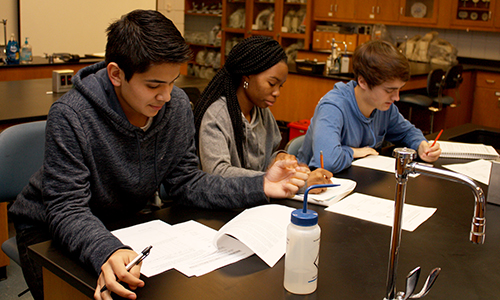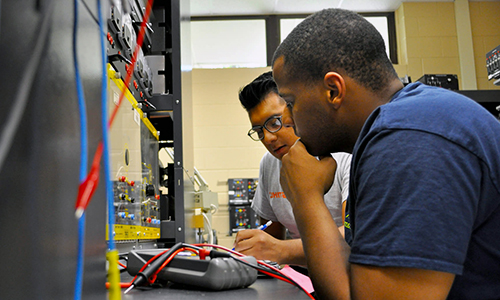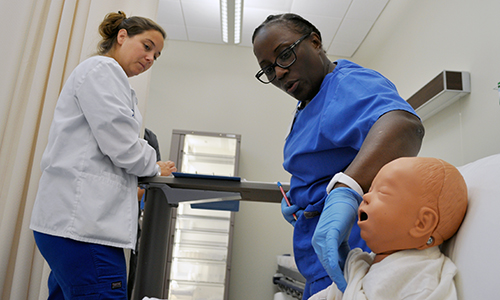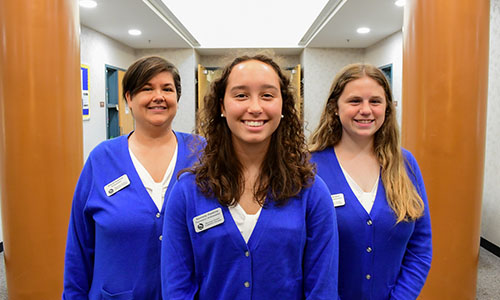
Infrastructure Projects Wrap Up
Beaufort County Community College has completed work on its accessibility projects. The project revamped the entire campus with a new network of sidewalks, elevators, and doors to make it accessible to students with disabilities.
Funded through the Connect NC bond, the project was designed by JKF Architecture to connect buildings in straightforward ways. Campus buildings previously met basic accessibility requirements, but routes between buildings often took students through parking lots or lacked sidewalks.
Now frequently used doors have push buttons, sidewalks connect the entire campus and street crossings are pedestrian-friendly. The crossings contain sensors that set off caution lights when tripped. Solar cells on top of the signs mean that the sensors and lights did not need to be grid-connected.
New ramps were built, sidewalks were rebuilt to grade-specifications and the entire entrance to Building 1 was redesigned to eliminate the need for steps or ramps altogether. Buildings 1, 5 and 9 received new door openers at frequently used entrances, while Buildings 1 and 5 had their elevators repaired and upgraded. New crossings were painted in parking lots, and a parking entrance was completely redesigned.
A.R. Chesson Construction carried out the sidewalk and crossing construction. Southern Elevator completed the elevator reconstruction and upgrades. East Carolina Door Controls upgraded doors. Combined, the projects generated three temporary positions in the Beaufort County workforce.
“We basically took a look at the campus through the experience of a student who is blind or uses a wheelchair,” said Jason Squires, director of campus operations. “Before this project, students would have to navigate parking lots, or go in very roundabout ways to get to their classes.”
“These projects will benefit all of our students and employees, not just those with disabilities,” said college president Dr. Dave Loope. “Our campus was built over the course of 50 years. That’s 50 years of evolving visions of design and awareness of accessibility. We took a holistic look at our campus and tied it together in the best possible way for all of our students.”
“We talk about infrastructure on a national level, but this is what it looks like on the ground,” pointed out Loope. “How do we keep a campus that was built in the 70s relevant to our needs today?”
In 2016, North Carolina voters passed the Connect NC Bond tosupport facilities upgrades at universities, colleges and state parks. BCCC
proposed a slate of projects totaling $6.5 million that are now working their way through the implementation process.





